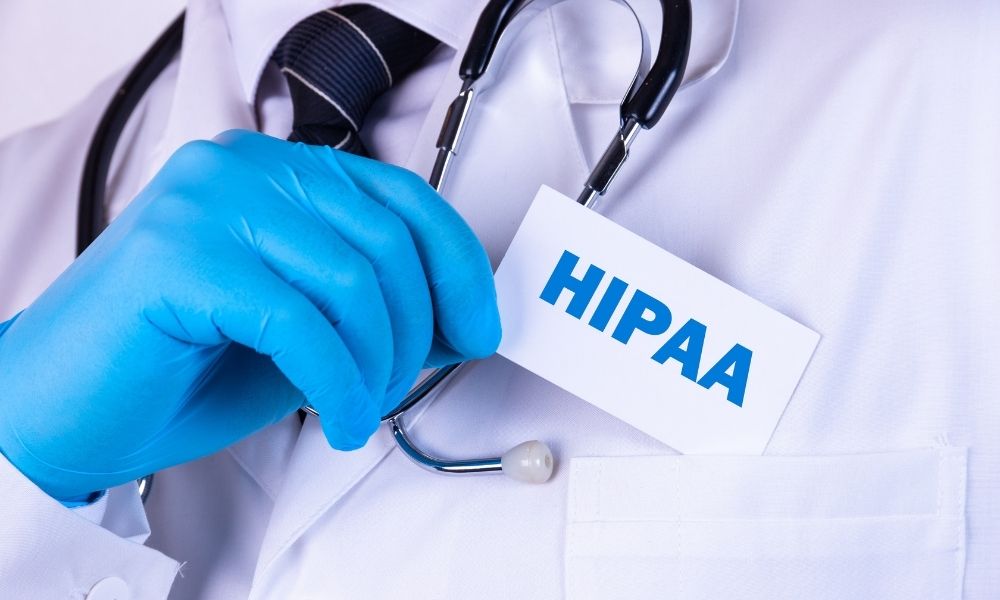The protection of sensitive data has become a concern for all organizations in the modern age. Health Insurance Portability and Accountability Act or HIPAA, is a law that provides guidelines to the healthcare industry to manage the storage, handling, and protecting health information. HIPAA Compliance is vital for healthcare institutions to ensure privacy, avoid penalties and maintain an image of trust.

HIPAA is applicable to every healthcare provider, healthcare plans, health clearinghouses, and business associates. PHI is defined as any information that can be used to identify a person for example, names and addresses, credit cards details, social security numbers, and medical procedure details and conditions. PHI can be sold on the black market at an expensive price because of the fact that it is used for identity theft.
The HIPAA Privacy rule defines guidelines for disclosure and use of health-related personal information (PHI). To safeguard privacy, integrity, and confidentiality of PHI covered entities must establish policies and practices. These policies should include access control, security incident procedures, security training and any other security measures. They are also bound to limit their sharing and use of personal data to the extent necessary to meet the purpose for which they were created.
The Security Rule of HIPAA requires that entities that are covered by the rule protect the integrity and confidentiality of ePHI through reasonable and appropriate administrative and physical security measures. These safeguards include audit controls, integrity checks, encryption security and contingency planning. The covered entities must also periodically conduct risk assessments to identify vulnerabilities and implement mitigation measures.
HIPAA’s Breach Notification Rule mandates that the covered entity inform individuals affected and the Secretary of Health and Human Services and in some cases, media in the event of an unsecured breach of PHI. A breach is defined as an acquisition of, access to, disclosure, or the use of PHI which violates the Privacy Rule and compromises its security or privacy. The entities that are covered by the rule are required to conduct a risk assessment in the event that they determine whether PHI is in danger and what harm could be caused by the breach.
HIPAA compliance requires continuous training and education of employees to ensure that they are aware of their responsibilities in relation to privacy and security. Risk assessments on a regular basis are conducted for the covered entities to find any vulnerabilities they might have. They then have to implement measures to reduce those risks. This could include implementing security controls, encryption of ePHI and creating plans of action in the event an incident involving security.
Technology has had a profound impact on virtually every aspect of modern life and healthcare is no exception. Electronic health records have been revolutionary by enabling healthcare providers to store and manage the patient’s information in a seamless manner. This has led to substantial cybersecurity risks and strict compliance with HIPAA is essential. Information about patients is highly sensitive and must be protected at all costs. The importance of HIPAA has grown more than ever before due to the increasing threat of cyberattacks. HIPAA is a law that helps to safeguard patient privacy and data security, thereby increasing trust among patients towards their health care providers.
HIPAA helps healthcare providers to maintain patient trust and safeguard their privacy. HIPAA violations can lead to massive fines, lawsuits, and reputational harm. Office for Civil Rights of the Department of Health and Human Services is accountable for the enforcement of HIPAA regulations. They can also investigate complaints and conduct compliance reviews.
HIPAA Compliance is Essential for healthcare organizations to protect privacy of patients in the digital Age. The HIPAA regulations offer clear guidelines on how to handle, store, handle, and safeguard private health information. The healthcare organizations should make sure they are HIPAA compliant with their policies and procedures, carry out regular risk assessments, provide constant training and education to their employees and conduct regular risk assessment. They can stay clear of fines and penalties for financial or legal violations by maintaining the trust of patients.
For more information, click why is hipaa important